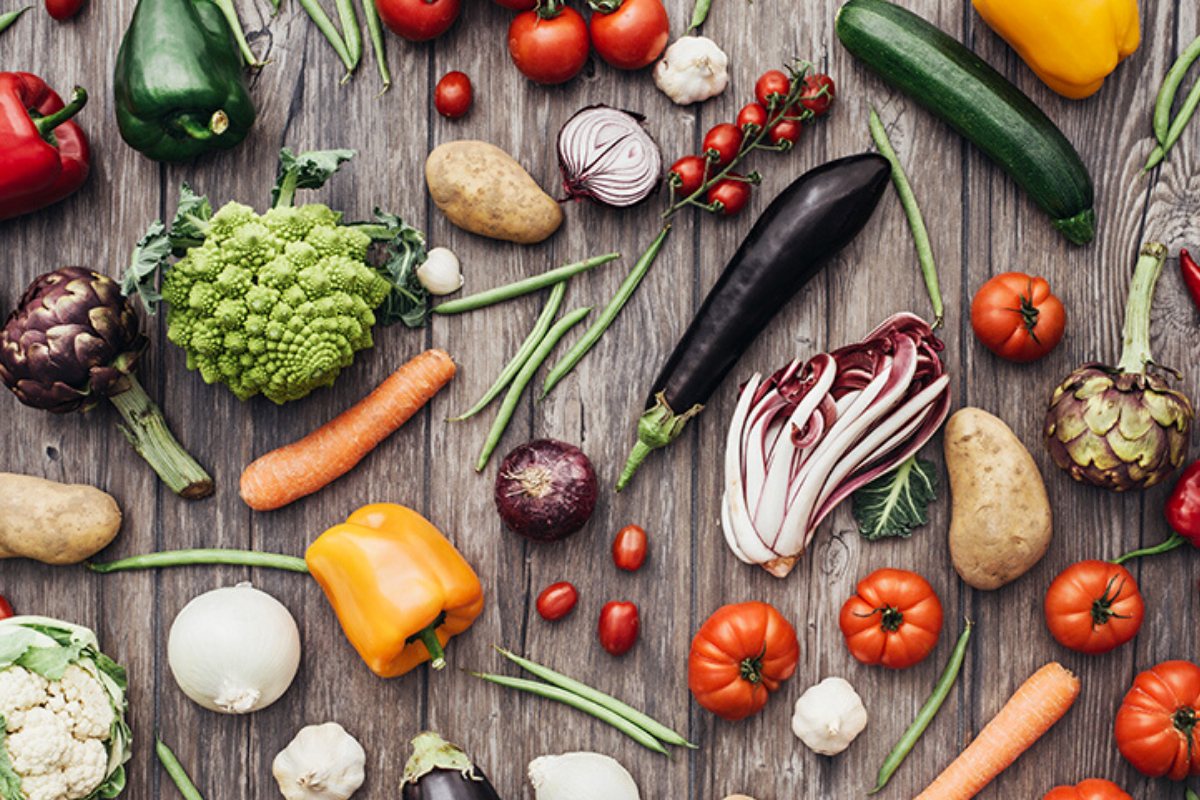
03 Mar Vegan Diets – Are They Really Good For You?
Vegan diets are gaining more traction in everyday life – with vegan cafes, restaurants and grocery stores popping up everywhere, it’s only normal to wonder if this diet is beneficial. Vegan diets cut out all animal products, like meat, dairy, eggs, gelatin and so on. Many people are cutting out animal products for health, moral and environmental reasons. So, the real question is – is this trendy diet actually beneficial for health? Let’s take a look.
What Can You Eat on a Vegan Diet?
Plant based foods like vegetables, fruits, nuts, beans, and tofu are all popular choices in the vegan meal plan. Dairy, eggs, meat, gelatin, butter and sometimes honey are all avoided by vegans, due to the cruelty of some of these industries as well as for environmental reasons. A well-balanced vegan diet can meet the average person’s needs for protein, iron, vegetable and fruit intake. Due to the lack of meat and eggs in a vegan’s diet, iron deficiency and vitamin b12 may be lacking.
Is it Expensive?
The cost of going vegan depends entirely on how you decide to eat, where you live and which grocery stores you shop at. A well debated fact is how expensive vegan diets can get- while costs can add up quickly, most vegan proteins are actually less expensive than their counterparts. If you purchase specialty vegan food like imitation meat and cheese, these kinds of foods will normally be more expensive. Like any other diet, spending money on dining out can add up as well. Overall, eating vegan on a budget requires the same amount of meal prep, planning and budgeting as any normal diet.
Lower Carbon Footprint
Eating a vegan diet has a lower carbon footprint on the environment and is more sustainable. Meat production requires much more water and crops for the animals than other non-animal proteins. Additionally, the breeding of cattle causes mass deforestation and greenhouse gases. Trees are cut down in order to produce food for cattle – which is how deforestation takes place in the meat industry. A vegan diet also requires natural resources, but the environmental impact is much more sustainable and requires less farmland. Vegan diets are also ethically humane, since no animal products are consumed.
Health Benefits
When you switch to a vegan diet, health benefits may increase significantly. People who follow a vegan diet have lower body weight, lower blood pressure, and lower cholesterol. They also eat more fiber, folate, vitamin C, vitamin E, potassium, and magnesium and less saturated fat. Vegan diets may also help with acne and weight loss since there are no artificial hormones
consumed from animal products. A well-balanced vegan diet may be the healthiest diet out there – with the exception of individuals with low iron. Vegan diets also have been found to lack B12, but this can easily be countered with a multivitamin.
So, Is It Worth It?
The vegan diet can be an amazing diet for individuals who eat a well-balanced diet rich in all the necessary vitamins and minerals. Additionally, the sustainability behind the vegan diet is highly appealing to most people. It’s important to know that people can still follow a vegan diet and eat unhealthy foods. If you have the right eating habits, veganism is a very healthy diet to follow. For any questions about the vegan diet and if it’s right for you, talk to your doctor today.
Book an appointment at NYMD Center today!




shippingtousa.mystrikingly.com
Posted at 11:59h, 13 MayViagra 5mg https://shippingtousa.mystrikingly.com/
Fine data. Many thanks!
https://pharmaciesshipping.wordpress.com/2023/05/15/canadian-pharmaceuticals-online-with-no-prescription/
Posted at 13:26h, 15 MayViagra sans ordonnance https://pharmaciesshipping.wordpress.com/2023/05/15/canadian-pharmaceuticals-online-with-no-prescription/
Awesome info. Thank you.
online pharmacy canada
Posted at 12:51h, 17 Maycanada drug http://trommelforum.ch/forum/profile/franbervage/
Good forum posts. Thanks!
https://www.horreur.club/community/profile/canadianpharmacy/
Posted at 14:35h, 17 MayViagra from canada https://www.horreur.club/community/profile/canadianpharmacy/
Whoa all kinds of awesome knowledge.
essidi.cmcommunityprofilecanadianpharmacy
Posted at 18:31h, 17 MayViagra generique https://essidi.cm/community/profile/canadianpharmacy/
Amazing info. Thank you!
https://nicol.co.tz/community/profile/canadianpharmacy/
Posted at 22:24h, 17 MayCanadian viagra https://nicol.co.tz/community/profile/canadianpharmacy/
With thanks! Ample tips.
prescriptions from canada without
Posted at 07:19h, 18 Maycanadian rx https://abusetalk.co.uk/forum/profile/canadianpharmacy/
Helpful advice. Cheers.
plclink.co.ukcommunityprofilecanadianpharmacy
Posted at 11:07h, 18 MayViagra 5 mg funziona https://plclink.co.uk/community/profile/canadianpharmacy/
Amazing many of valuable facts.
warriorfarm.co.ukcommunityprofile153413
Posted at 13:13h, 18 MayViagra alternative https://warriorfarm.co.uk/community/profile/153413/
Amazing loads of great facts!
ascenddeals.combeaverageprofilecanadianpharmacy
Posted at 14:52h, 18 MayViagra dosage https://ascenddeals.com/beaverage/profile/canadianpharmacy/
Thanks! A lot of postings!
list of reputable canadian pharmacies
Posted at 16:59h, 18 Mayglobal pharmacy canada https://baldstyled.com/community/profile/canadianpharmacy/
You made your point!
global pharmacy canada
Posted at 12:44h, 20 MayCanadian Pharmacies Shipping to USA https://www.careerstek.com/forum/profile/canadianpharmacy/
With thanks. Great information!
https://chanchuoi.com/community/profile/canadianpharmacy/
Posted at 20:40h, 20 MayViagra bula https://chanchuoi.com/community/profile/canadianpharmacy/
Whoa tons of good advice.
https://buyviagraonlinet.com/
Posted at 10:18h, 11 SeptemberViagra pills https://buyviagraonlinet.com/
Nicely put, Kudos!